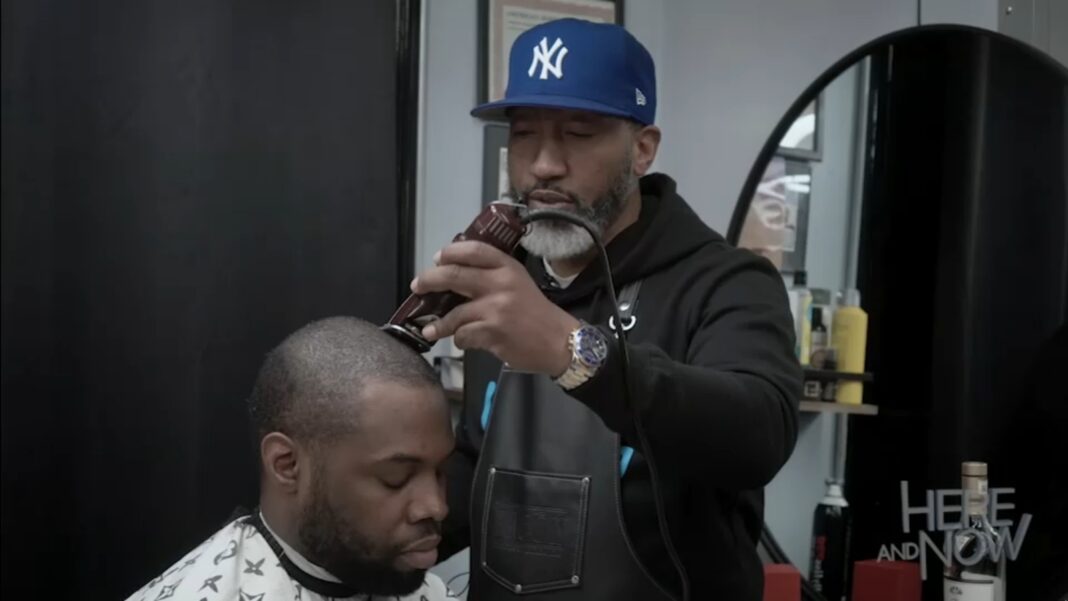Promoting Health and Wellness Among Black Men in Brooklyn: The Barbershop Talk with Brothers Initiative
In Brooklyn, a local nonprofit organization is taking strides to improve community health and wellness among Black men. The Arthur Ashe Institute for Urban Health is spearheading this effort with a program that addresses a critical gap in mental health care access. Recent statistics from the Centers for Disease Control and Prevention highlight that Black males are 40% less likely than their counterparts to seek mental health treatments. This troubling trend has spurred the creation of the Barbershop Talk with Brothers initiative.
Bridging the Gap
The Barbershop Talk with Brothers initiative is designed to meet Black men in a familiar, comfortable setting—barbershops. These mainly informal environments serve as community hubs where conversations flow freely. By integrating discussions about mental health into these everyday spaces, the program aims to break down the stigma surrounding emotional wellbeing and encourage men to seek counseling when necessary.
With over 100 barbershops in the area participating, the initiative is making significant strides. Not only does it provide educational resources, but it also fosters an atmosphere in which mental health can be talked about openly. Barbers become informal health advocates, equipped with the knowledge to assist customers in recognizing when professional mental health support would be beneficial.
Community Voices: Dr. Marilyn Fraser and Jerome Archer
Joining the conversation about this initiative are two influential figures: Dr. Marilyn Fraser, the CEO of the Arthur Ashe Institute for Urban Health, and Jerome Archer, owner of Platinum Cuts unisex salon in Bed-Stuy, Brooklyn. Dr. Fraser emphasizes the importance of accessibility in mental health care. “We need to create environments where Black men feel safe discussing their feelings,” she states, underscoring the unique dynamics within male-dominated spaces.
Archer contributes to this conversation by sharing firsthand experiences from his barbershop. “We talk about everything in the chair,” he says, “so why not make mental health part of that dialogue?” His commitment to fostering an open atmosphere in his salon allows him to connect deeply with his clients, who often view him not just as a barber but as a confidant.
The Broader Picture: Cultural Narratives and Historical Context
The Barbershop Talk with Brothers initiative intersects with broader narratives around Black family resilience. Alongside Dr. Fraser and Archer, the program coincides with discussions around new literature such as “The Black Family Who Built America.” This book chronicles the legacy of the McKissack family, pioneers of the nation’s largest minority- and woman-owned design and construction company. Such narratives underscore the significance of community and the nuanced experiences of Black families in America.
In addition to these discussions, programs like Black Farmers United New York State are addressing socioeconomic factors that impact mental health. With topics ranging from the effects of Trump-era tariffs on farming communities to holistic approaches to wellness, these initiatives create a multifaceted view of health that extends beyond individual care.
Accessible Media Outreach
To further amplify these vital conversations, “Here and Now with Sandra Bookman” airs weekly on Sundays at 12:00 p.m. on Channel 7, WABC-TV in New York City. The show not only sheds light on local health initiatives but also fosters an understanding of the integral role community plays in well-being.
Listeners interested in integrating these discussions into their lives can subscribe to the Here and Now podcast available on various platforms, including ABC7NY. The visual aspect of the show is also accessible through Connected TV apps for platforms like Fire, Roku, and Apple TV, ensuring that community members can engage easily with the content.
Promoting Change through Awareness
The collective efforts of organizations like the Arthur Ashe Institute for Urban Health, community salons like Platinum Cuts, and broader cultural conversations are steps toward destigmatizing mental health in Black communities. By facilitating open dialogue and making resources accessible, these initiatives empower individuals to take charge of their emotional health, fostering a supportive community atmosphere in the face of challenges.
Black men’s mental health remains a critical area of focus. With programs like Barbershop Talk with Brothers leading the charge, there is hope for creating lasting change that validates and uplifts a historically underserved demographic.



